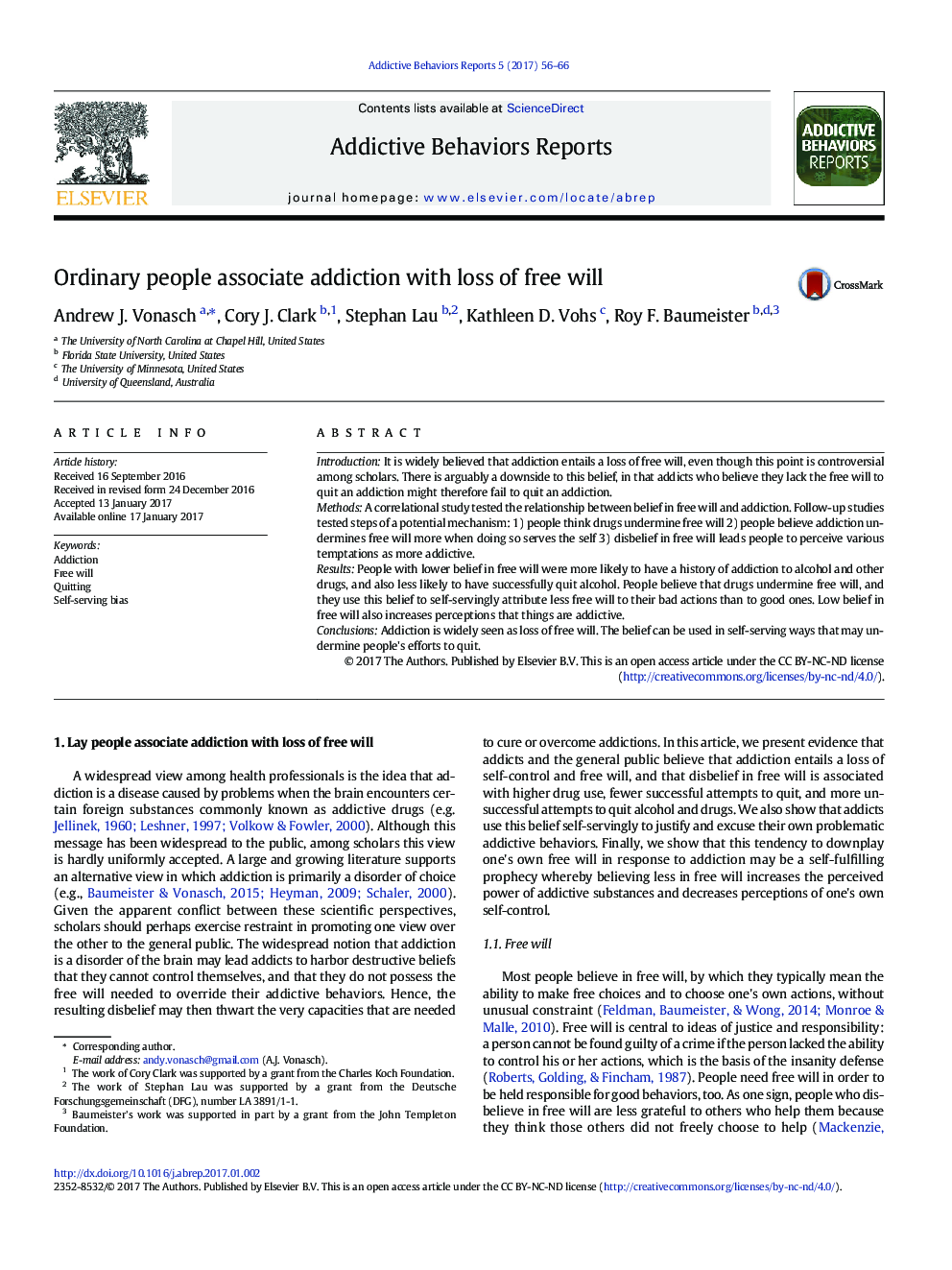| Article ID | Journal | Published Year | Pages | File Type |
|---|---|---|---|---|
| 5037957 | Addictive Behaviors Reports | 2017 | 11 Pages |
IntroductionIt is widely believed that addiction entails a loss of free will, even though this point is controversial among scholars. There is arguably a downside to this belief, in that addicts who believe they lack the free will to quit an addiction might therefore fail to quit an addiction.MethodsA correlational study tested the relationship between belief in free will and addiction. Follow-up studies tested steps of a potential mechanism: 1) people think drugs undermine free will 2) people believe addiction undermines free will more when doing so serves the self 3) disbelief in free will leads people to perceive various temptations as more addictive.ResultsPeople with lower belief in free will were more likely to have a history of addiction to alcohol and other drugs, and also less likely to have successfully quit alcohol. People believe that drugs undermine free will, and they use this belief to self-servingly attribute less free will to their bad actions than to good ones. Low belief in free will also increases perceptions that things are addictive.ConclusionsAddiction is widely seen as loss of free will. The belief can be used in self-serving ways that may undermine people's efforts to quit.
